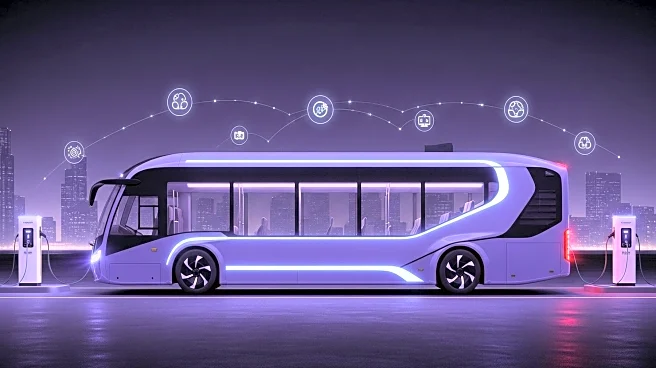What's Happening?
BYD has launched its third-generation electric bus platform, featuring a 1000-volt architecture. This new platform, known as the e-Bus Platform 3.0, integrates several advanced technologies from BYD's passenger car division. The platform supports fast charging and includes BYD's proprietary LFP Blade batteries, offering up to 593 kWh for long-range operations. The new chassis design incorporates a cell-to-chassis approach, enhancing efficiency and safety. The platform also includes advanced features like silicon carbide power electronics and a 7-in-1 thermal management system, aimed at reducing energy consumption and increasing range.
Why It's Important?
The introduction of the e-Bus Platform 3.0 represents a significant advancement in electric bus technology, potentially setting new standards for efficiency and performance in the public transportation sector. The higher voltage architecture allows for faster charging and improved energy management, which could lead to lower operational costs and increased adoption of electric buses by transit authorities. This development is crucial as cities worldwide seek to reduce emissions and transition to cleaner public transport options. BYD's innovation may also influence other manufacturers to adopt similar technologies, accelerating the shift towards sustainable urban mobility.
What's Next?
BYD is expected to begin deploying buses built on the new platform, starting with the C11 model. The company may also expand its manufacturing capabilities to meet anticipated demand. As the platform gains traction, it could lead to increased competition in the electric bus market, prompting other manufacturers to enhance their offerings. Transit agencies may evaluate the new platform's performance and cost-effectiveness, potentially leading to more widespread adoption of electric buses. Additionally, BYD's advancements could spur further innovation in battery technology and electric vehicle infrastructure.











